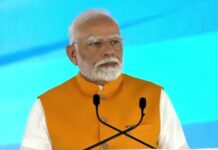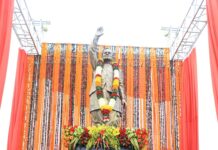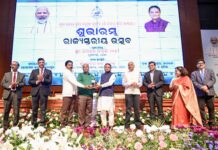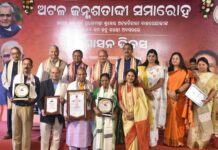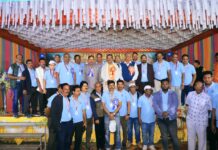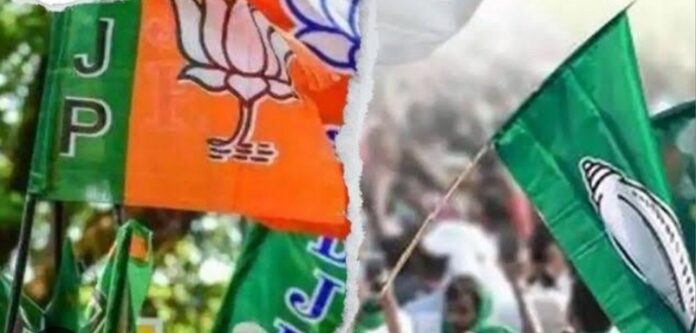By Dr Bhabani Shankar Nayak
LONDON: If God loves all equally, then why do priests live in separate houses? Inequality is an inalienable core of religion and religious practices, which devalues human beings and their everyday consciousness.
With the rise of technology and artificial intelligence, the role of religion in society is diminishing. People are becoming less religious in their everyday lives. The Religious Landscape Study by the Pew Research Center indicates that younger individuals are becoming less religious. However, right-wing political parties and reactionary social, political, and cultural organizations are determined to revive religion and religious symbols and practices through state support, populist electoral politics, and policies.
The ascent of religious right-wing forces in politics can only be sustained with social and cultural support. As a result, both ruling and non-ruling elites are exerting efforts to provide funding for the revival of reactionary religious, social, cultural, and political landscapes. The aim is to domesticate individuals in the creation of moral citizens who do not question authority but rather trust in predestined fate for everyday challenges.
Moral citizens refrain from blaming the governments and, instead, turn to gods and goddesses for the transformation of their material conditions towards peace and prosperity. Education and educational institutions play a pivotal role in this domestication project. Consequently, governments and corporations fund religious revival efforts by celebrating popular religious images, institutions, places, and practices.
Within this context, one needs to situate the competitive religious politics between the BJD and BJP in the state of Odisha. The BJD-led government of Odisha, headed by Mr. Naveen Patnaik, is allocating substantial funds under its 5T initiatives to revive local religious institutions, ostensibly for developing amenities near religious places. This move is perceived as an attempt to counter the religious politics spearheaded by the BJP. In the midst of this competitive religious politics, the development and welfare of the people seem to have taken a backseat. In reality, religious politics provides a virgin and fertile ground for the BJP to advance its reactionary Hindutva politics, which contradicts the inclusive ethos, values, and culture of Odisha.
The Government of Odisha has succumbed to the Hindutva campaign and renamed the Kalahandi University to Maa Manikeswari University in Bhawanipatna. The celebration of the popular deity Maa Manikeswari by the devotees of western Odisha predates the royal patronage of the Nagavanshi local kings and Suryabansi kings in the state. There is a diverse popular history and local mythology surrounding the deity and her origin. The higher-caste Nagavanshi Kshatriya kings and their followers popularized the deity to domesticate the diverse indigenous population in the region, as it is easier to control religious followers than politically conscious citizens.
There is nothing new in the development and naming of religious educational institutions in India and Odisha. However, a modern secular state must promote a secular, progressive, and scientific ethos in its everyday governance, allowing citizens to develop themselves for social transformation and reap the benefits of new forms of science and technology for progress and prosperity. It is reactionary to promote religious symbols in education and rebrand a popular regional university in the name of a local deity, putting the present and future of students and youths in the region in jeopardy.
The rebranding of Kalahandi University is not about the promotion of local culture and higher education. Instead, it is a result of competitive religious politics between the BJD and BJP for electoral gain. This move serves the larger goal of both ruling and non-ruling elites to domesticate citizens in the region and ensure the Hinduisation of the indigenous population. The Hinduisation of indigenous communities helps Hindutva politics consolidate and grow in the region, with the BJP being the direct beneficiary of such a project.
The growth of Hindutva politics and the Hinduisation of the population in the region can be seen as a form of cultural genocide for diverse indigenous communities. This project and political outcome facilitate the mining-led industrial capitalist class in accessing and extracting natural resources in the region without facing legal barriers. Constitutional provisions and support for indigenous people and their areas will not be applicable when indigenous communities are transformed into Hindus. Therefore, Hinduisation becomes a cultural and political project of the BJP but is pursued by the BJD in the state.
Maa Manikeswari does not require the support of the BJP, BJD, or new universities for her survival. Her followers can celebrate her without state and government patronage. It is essential to allow people to celebrate their religious faiths and beliefs in the region and withstand the onslaught of uneven development—a product of both previous and current governments in the state and center. The regional underdevelopment provides fertile ground for religious politics to flourish in the region. However, the competitive religious politics between the BJD and BJP undermines the people in the region, as they seek to celebrate gods and goddesses for their electoral gain while the populace suffers without technologically advanced schools, colleges, universities, and hospitals.
The people of Odisha must unite and engage in discussions about issues that truly matter in their everyday lives. It is crucial to reject religious and cultural gimmicks by the government and political parties like BJP and BJD that aim to undermine their consciousness. If the Government of Odisha and its political leadership genuinely believe in development, it raises questions as to why they invest in religious places instead of focusing on more essential aspects of progress and welfare based on education, health, and livelihoods promotion.
(The writer Dr Bhabani Shankar Nayak, hails from Eastern Indian State of Odisha, Presently Teaches at University of Glasgow, London, UK and has 2 Decades of Teaching Experience in British Universities. Views Expressed are Personal).


